Filter by
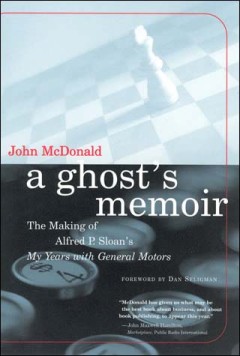
A ghost's memoir : the making of Alfred P. Sloan's "My years with General Mot…
Includes index.The story of the ghostwriting of Alfred P. Sloan's best-selling memoir, General Motor's attempts to block the book's publication, and the author's eventual triumph over the corporation.Published in 1964, My Years with General Motors was an immediate best-seller and today is considered one of the few classic books on management. The book is the ghostwritten memoir of Alfred P. Slo…
- Edition
- -
- ISBN/ISSN
- 9780262279420
- Collation
- 1 online resource (xvii, 202 pages)
- Series Title
- -
- Call Number
- 620 MCD

Democracy's Arsenal: Creating a Twenty-First-Century Defense Industry
The author describes the transformations needed in government and industry to achieve a new, more effective system of national defense.OCLC-licensed vendor bibliographic record.
- Edition
- -
- ISBN/ISSN
- 9780262295260
- Collation
- 1 online resource (xiv, 432 pages) :illustrations
- Series Title
- -
- Call Number
- -

Globalization and the poor periphery before 1950
"In Globalization and the Poor Periphery before 1950 Jeffrey Williamson examines globalization through the lens of both the economist and the historian, analyzing its economic impact on industrially lagging poor countries in the nineteenth and early twentieth centuries. Williamson argues that industrialization in the core countries of northwest Europe and their overseas settlements, combined wi…
- Edition
- -
- ISBN/ISSN
- 9780262286329
- Collation
- 1 online resource (x, 189 pages) : illustrations
- Series Title
- Ohlin Lectures
- Call Number
- 362 WIL g
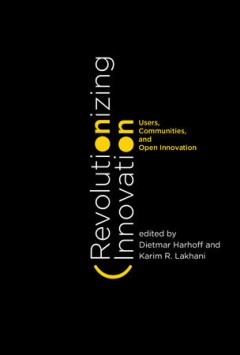
Revolutionizing innovation :users, communities, and open innovation
The last two decades have witnessed an extraordinary growth of new models of managing and organizing the innovation process that emphasizes users over producers. Large parts of the knowledge economy now routinely rely on users, communities, and open innovation approaches to solve important technological and organizational problems. This view of innovation, pioneered by the economist Eric von Hi…
- Edition
- -
- ISBN/ISSN
- 9780262331524
- Collation
- 1 online resource (xv, 577 pages) :illustrations
- Series Title
- -
- Call Number
- -
Make it new: The history of Silicon Valley design
Drawing on unprecedented access to a vast array of primary sources and interviews with nearly every influential design leader, this thought provoking book reveals design to be the missing link in Silicon Valley's ecosystem of innovation. --OCLC-licensed vendor bibliographic record.
- Edition
- -
- ISBN/ISSN
- 9780262330923
- Collation
- 1 online resource (xxv, 253 pages) :illustrations (some color)
- Series Title
- -
- Call Number
- -
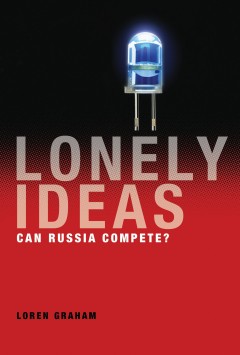
Lonely Ideas: Can Russia Compete?
When have you gone into an electronics store, picked up a desirable gadget, and found that it was labeled "Made in Russia"? Probably never. Russia, despite its epic intellectual achievements in music, literature, art, and pure science, is a negligible presence in world technology. Despite its current leaders' ambitions to create a knowledge economy, Russia is economically dependent on gas and o…
- Edition
- -
- ISBN/ISSN
- 9781461942979
- Collation
- 1 online resource (xi, 204 pages)
- Series Title
- -
- Call Number
- -

The Effects of Competition: Cartel Policy and the Evolution of Strategy and S…
"Using data from before and after the 1956 Act, this book compares the two groups of industries to determine the effect of price competition on concentration, firm and plant numbers, profitability, advertising intensity, and innovation. The book avoids two problems common to empirical studies of competition: how to measure the intensity of competition and how to unravel the links between compet…
- Edition
- -
- ISBN/ISSN
- 9780262284639
- Collation
- 1 online resource (x, 542 pages) :illustrations
- Series Title
- -
- Call Number
- -
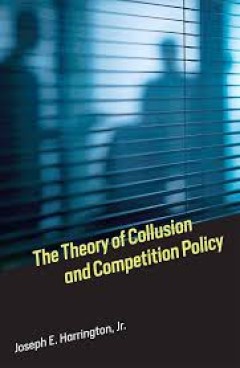
The theory of collusion and competition policy
A review of the theoretical research on unlawful collusion, focusing on the impact and optimal design of competition law and enforcement.OCLC-licensed vendor bibliographic record.
- Edition
- -
- ISBN/ISSN
- 9780262342995
- Collation
- 1 online resource (x, 133 pages)
- Series Title
- -
- Call Number
- -
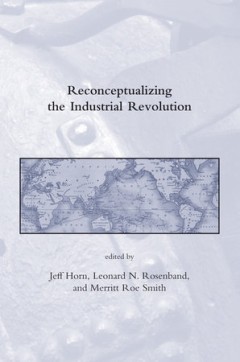
Reconceptualizing the Industrial Revolution
Closely linked essays examine distinctive national patterns of industrialization.This collection of essays offers new perspectives on the Industrial Revolution as a global phenomenon. The fifteen contributors go beyond the longstanding view of industrialization as a linear process marked by discrete stages. Instead, they examine a lengthy and creative period in the history of industrialization,…
- Edition
- -
- ISBN/ISSN
- 9780262289504
- Collation
- 1 online resource (vi, 356 pages).
- Series Title
- -
- Call Number
- -
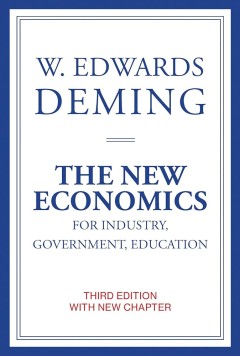
The new economics :for industry, government, education
A new edition of a book that details the system of transformation underlying the 14 Points for Management presented in Deming's Out of the Crisis . It would be better if everyone would work together as a system, with the aim for everybody to win. What we need is cooperation and transformation to a new style of management." --from The New Economics for Industry, Government, Education In this boo…
- Edition
- Third edition
- ISBN/ISSN
- 9780262355445
- Collation
- 1 online resource (240 pages).
- Series Title
- -
- Call Number
- -
 Computer Science, Information & General Works
Computer Science, Information & General Works  Philosophy & Psychology
Philosophy & Psychology  Religion
Religion  Social Sciences
Social Sciences  Language
Language  Pure Science
Pure Science  Applied Sciences
Applied Sciences  Art & Recreation
Art & Recreation  Literature
Literature  History & Geography
History & Geography